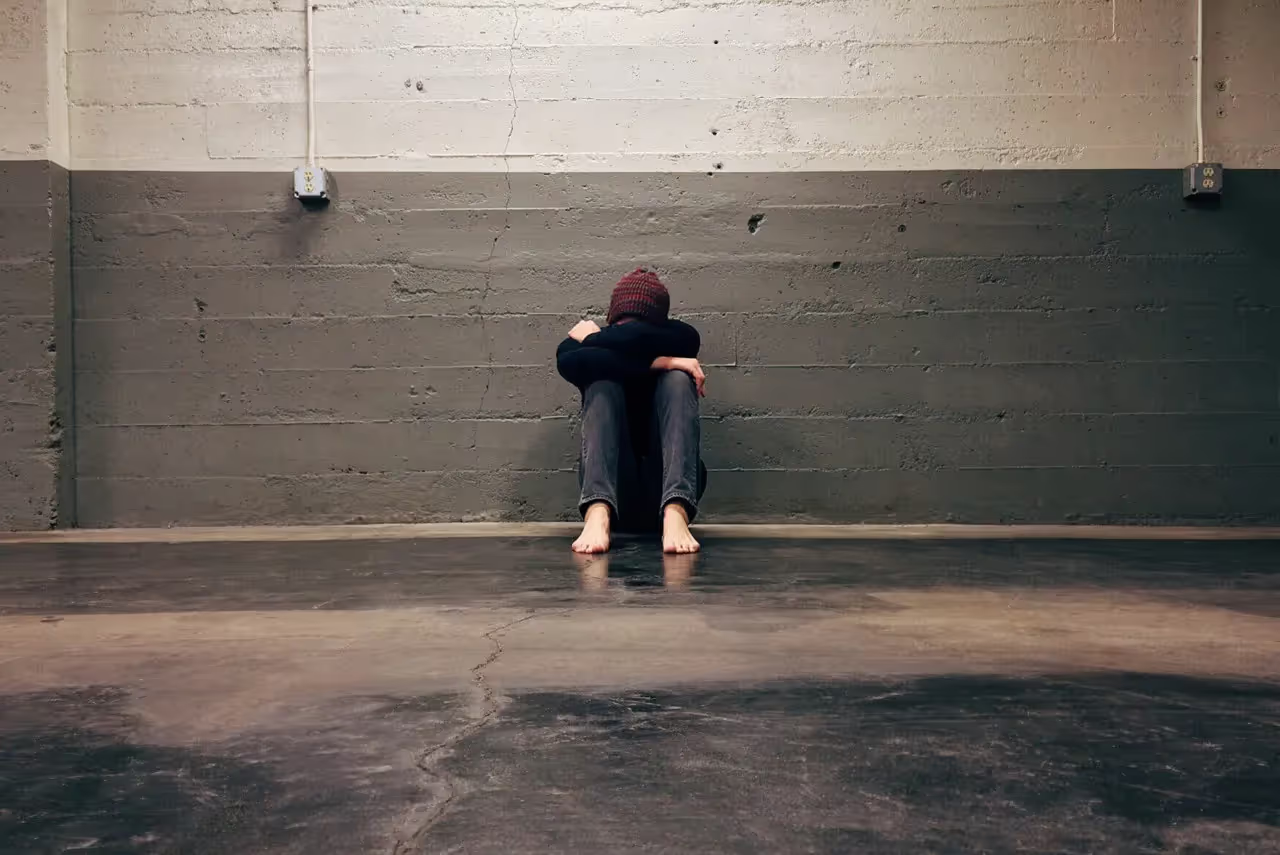Identifying family trauma can be a painful process.The effects of trauma manifest in various painful ways. No two people are alike, and therefore the...

Identifying family trauma can be a painful process.
The effects of trauma manifest in various painful ways. No two people are alike, and therefore the effects of trauma on individuals vary.
Trauma affects your everyday life, decisions, relationships, career, and mood. The debilitating effects of trauma can be long term, bubbling beneath the surface or explosive.
Suffering from the effects of trauma can make you feel like you've fallen into a deep, dark hole. Trauma robs you of hope, happiness, and peace of mind.
The effects of trauma manifest in your mental and emotional health, the aging process, sex life, and even intellectual acumen.
What are the signs and symptoms of trauma? How do you identify personal trauma and how it may be manifesting in your life?
Many people suffering from the effects of family trauma are unaware of the source of their experiences. You might ask yourself, "Why do I feel this way?"
Trauma can make you feel a bevy of confusing emotions and physical sensations. As a result, people often seek alternate solutions or cures, instead of choosing professional trauma counseling.
What are some signs and symptoms of suffering the effects of family trauma? How does family trauma manifest itself in everyday life?
Irregular sleep patterns, overwhelming feelings of sadness, regrets about the past, low self-esteem, feelings of inadequacy, change in appetite, lack of motivation, and low libido are just some of the signs of suffering from trauma.
Other symptoms include an inability to laugh, pessimism, social awkwardness, anxiety, lack of concentration, inability to grieve or deal with loss, depression, and feeling trapped by a sense of duty.
If you experience these signs and symptoms in your everyday life, do not ignore them. Seek professional counseling.
Identifying family trauma can mean different things to different people. The effects of family trauma are as individual as the trauma suffered by the individual.
Family trauma can manifest as disappointment or hurt resulting from seemingly minor problems. Or family trauma can manifest as an overwhelming, debilitating feeling that prevents you from functioning.
People suffering from family trauma often live in denial. They are either unable or unwilling to identify it and call it by name.
Others deem the effects of family trauma as being the sign of a 'weak or broken person'. Denial only exaggerates the debilitating effects of family trauma and increases suffering.
A good working definition of family trauma is an overarching feeling of sadness and dejection which causes feelings of pessimism in all areas of life.
Identifying Family Trauma: Dealing with Others
Identifying family trauma is challenging because more often than not, family members do not want to discuss family trauma.
It is difficult to reveal to others when you are suffering, or how exactly you are suffering from family trauma. Especially if they do not know you are suffering.
Family members may dismiss the effects of suffering from family trauma. They may tell you to "solve your own problems" or to simply "get over it."
It can be difficult to reveal your suffering to family members because they may be either directly involved in the source of the trauma, or have direct knowledge of the incident.
Sometimes when you reveal trauma, others will respond by selfishly describing their own instead of really listening. This can be discouraging.
You might feel, "The more my family member talked about herself, the less I wanted to reveal about myself." Suffering the effects of family trauma can be very lonely.
Identifying family trauma is about identifying stressors- incidents that propel you mentally, emotionally, and physically towards suffering.
Have you experienced the death of a family member?
Have you been divorced or endured a separation?
Have you been the victim of infidelity or domestic violence?
Do you have a family member(s) who struggles with alcoholism or substance abuse?
Do you have ongoing strains with children or siblings?
Are you experiencing "empty nest syndrome"?
If you have experienced any of these stressors (or more than one at once), you may be suffering the effects of family trauma. Take your feelings seriously and seek professional counseling.
Everyone likes a certain degree of predictability in their life. We create our comfort zones to help us cope with stress.
Stressors thrust you outside your comfort zone.
Stressors are not just events or incidents. Family members may also be stressors, living breathing stressors who contribute to family trauma.
Identifying family trauma is often about identifying family members.

Identifying family trauma is only the first step toward recovery and healing.
People who suffer the effects of family trauma are in a real dilemma.
Do you confide in family members, knowing it may cause further frustration or deeper wounds in already wounded relationships? Or, do you continue to bury feelings in order to maintain the 'one big happy family' façade?
A vital part of recovery and healing is honesty. You need to be honest with as many family members as common sense will allow.
Never submit yourself to further abuse at the hands of a stressor family member. Family trauma is the result of unaddressed emotions, but family members may exploit your vulnerability.
Never feel ashamed of your feelings. And never allow a family member to make you feel ashamed.
You need to be able to trust the person in which you confide. You need to feel safe.
Identifying family trauma is about identifying the correct person in which to confide. If you are suffering from family trauma, seek the help of a professional counselor.
A professional counselor will help you discern when to be vulnerable, and with whom.
Identifying family trauma is a choice. It is a choice that leads to healing and freedom.
Identifying family trauma, like most recovery and personal growth, is a challenge. But it is a worthwhile, life-changing challenge.
Family trauma is a particularly challenging kind of suffering because it involves, you guessed it, family. Get help from a professional counselor, an outside opinion, and an objective viewpoint.
There is healing and forgiveness that can be found for those suffering from family trauma.
https://www.amazon.com/Family-Therapy-Workbook-Interventions-Families/dp/1683732995/ref=sr_1_1?crid=6G2VDIMF1DQP&keywords=family+counseling&qid=1656957485&sprefix=family+counseling%2Caps%2C112&sr=8-1
https://www.amazon.com/Essential-Skills-Family-Therapy-Third/dp/1462533434/ref=sr_1_4?crid=6G2VDIMF1DQP&keywords=family+counseling&qid=1656957545&sprefix=family+counseling%2Caps%2C112&sr=8-4
https://www.amazon.com/Didnt-Start-You-Inherited-Family/dp/1101980389/ref=sr_1_1?crid=2Q55FMWW45CLO&keywords=family+trauma&qid=1656957628&sprefix=family+trauma%2Caps%2C93&sr=8-1
Regular therapy often focuses on addressing current life issues, developing coping skills, and improving overall mental health. Trauma counseling, on the other hand, specifically addresses traumatic experiences and their impact on the individual. Techniques like Eye Movement Desensitization and Reprocessing (EMDR) therapy are often used in trauma treatment to help individuals process traumatic memories and find relief.
Absolutely, trauma-informed therapy can be integrated with other therapeutic approaches, such as cognitive-behavioral therapy (CBT), dialectical behavior therapy (DBT), or somatic therapies, to provide comprehensive, individualized treatment.
Traditional therapy approaches may not adequately address the specific needs of clients with trauma histories. Trauma-informed care focuses on acknowledging and validating clients' traumatic experiences, creating a safe therapeutic environment, and providing targeted interventions that foster healing and resilience.
Childhood trauma can make it difficult to trust people and to form new relationships.
It can also lead to conflict in existing relationships. Trauma can also make it difficult to communicate and be intimate with others.
If you have experienced childhood trauma, it's important to seek help from a therapist or counselor who can help you heal and develop healthy relationships.
During the initial sessions, a trauma-informed therapist will typically focus on establishing a safe and trusting therapeutic relationship. They may gather information about your trauma history, current challenges, and therapeutic goals. You might also discuss boundaries, confidentiality, and expectations for the therapy process. Early sessions often emphasize building rapport and creating a comfortable environment where you feel supported and understood.
Yes, it's normal for boundaries to evolve as your healing journey progresses.
Communicate any changes in your boundaries with your therapist, who can help you navigate these adjustments and ensure that your needs continue to be respected and prioritized.